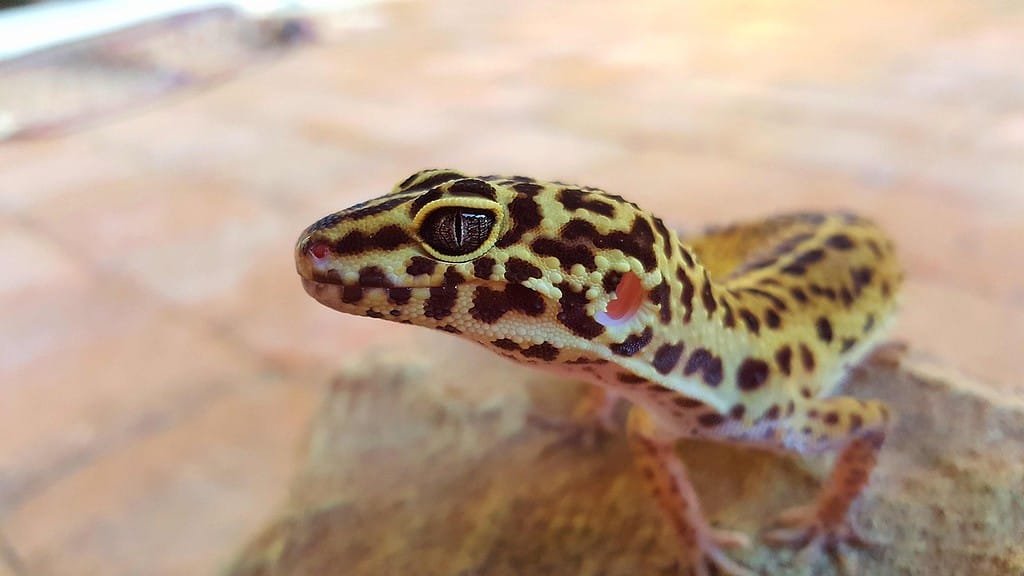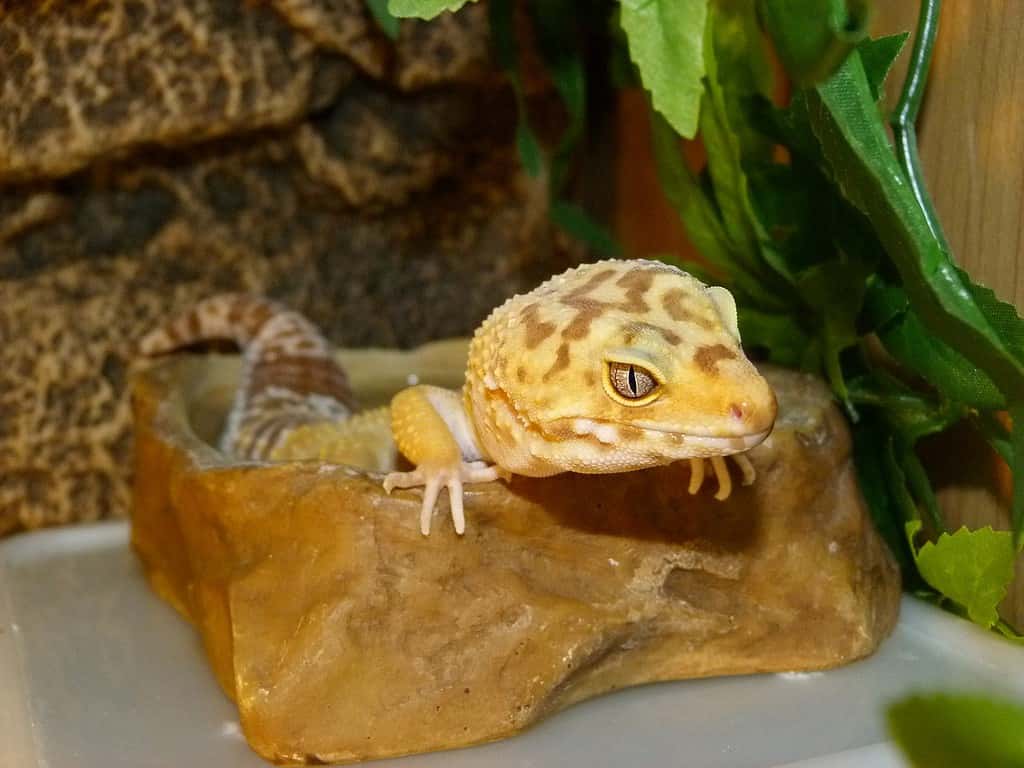The necessity of ultraviolet lights is one of the most highly debated topics among owners/parents of Leopard Geckos. Some claim they do not require it, but others dispute this claim. But what is reality? Do Geckos require ultraviolet light?

Well, they may or may not. When they are healthy, they do not require UV light. Providing UV light is better only for Metabolic Bone Disorder (MBD). MBD is very frequent in Geckos, and Geckos also like dim light. So, in that sense, UV light may be useful for them.
It is feasible to avoid this, but doing so is detrimental to a pet’s health unless you know how to supplement their diet correctly.
Before buying a Leopard Gecko UV light, read this post to understand all sides.
What Is UV?
UV illumination is essentially light radiation that is invisible to the human eye, meaning that you cannot see it, but it does heat things. The name “Ultra Violet Light” comes from the fact that its energy power level is significantly higher than that of sources of violet light.
UV light comes from natural sunshine, UVB bulbs, and UV lamps. The electromagnetic spectrum is the scale used to quantify ultraviolet, visible, and infrared light. UV light can come from various sources, including black, fluorescent, and gas discharge lamps.
Different amounts of UVB light or UVB bulbs are required depending on the type of reptile. Near-equatorial and tropical reptiles need greater UV light, particularly UVB radiation. The quantity of UVB radiation depends on how far your pet reptile’s habitat is from the equator.
How Is Uvb Light Distinct From Uv Light?
Lighting is one of the most confusing components of reptile care. This is especially true for leopard geckos, which need UV light, leaving many keepers unclear on how to care for them.
Three distinct types of ultraviolet radiation are produced by the sun. These wavelengths are referred to as UVA, UVB, and UVC. In order to maintain their health and happiness, amphibians and reptiles, such as leopard geckos, require exposure to both UVA and UVB rays.
Do Leopard Geckoes Require UV?
The Leo is a tiny lizard that lives on the ground and may be found primarily on dry lands. Although easier to care for, they have specific lighting needs.
Leos require UVA and UVB to synthesize vitamin D, especially D3, which is necessary for bone health. It should be adequate to use a 6-7% UVB bulb that is turned on for no more than eight hours daily. However, a UVB bulb is not required if you provide them with additional vitamin-D3 in addition to their regular diet. UVB light also helps resemble their natural habitat.
Why Do Leopard Geckos Need UV?
Leopard geckos require UV light to use calcium, manufacture vitamin D3 and maintain body temperature and bones.
Even while leopard geckos do not spend much time exposed to natural daylight, they sunbathe to stabilize their internal temperature. Your pet can maintain health and happiness with the proper lighting setting for your leopard gecko.
Geckos need enough amounts of vitamin D3 to maintain healthy bone density, which is also essential for the Gecko’s overall development. Leopard gecko skin absorbs more UVB rays than other reptiles. Therefore, if your Gecko basks right before sunrise, it absorbs as much UV radiation as possible.
Even if your Gecko exposed its body to modest amounts of light, it would require UV light regularly. Because of their behavior, these reptiles are known as crepuscular, which means that they are most active during the hours when there is a gradual decrease in light.
They will sometimes relax by exposing various areas of their bodies to the light. You can stop UV rays from coming in or use a dim light at night. However, providing them with some nighttime for their circadian cycle to work properly is vital. The temperature mustn’t fall below the average. There are leopard geckos that can live without exposure to UV light.
How Much Light Do Leopard Geckos Need?
When lighting your leopard gecko tank, you will attempt to replicate the day-night cycles of the Middle East. It means:
- In the summer, there are 14 hours of daylight and 10 hours of the night.
- During the winter, there are 12 hours of daylight and 12 hours of the night.
An ordinary Leo owner will not require anything more complex than a simple, inexpensive controller with no additional settings.

What if Leopard Geckos Don’t Get UVB?
If a leopard gecko is not allowed to be exposed to UVB light regularly, it will not be able to produce the vitamin D3 necessary to absorb nutrients and be healthy. They might develop significant health issues or die if they can’t absorb calcium. In leopard geckos, the metabolic bone disease is one of the most prevalent complications of calcium insufficiency.
Lethargy, lack of appetite, a soft jawbone, leg deformity, and an inability to freely move about are some of the symptoms of metabolic bone disease. Supplements and other therapies can save a leopard gecko’s life if calcium insufficiency is discovered early. Make sure your leopard gecko receives regular artificial UVB illumination to avoid calcium shortage and metabolic bone disease.
Do Leopard Geckos Require UVB Light at Night?
Even though they are most active at night, leopard geckos often do not require UVB light. At night, there is naturally less light in the environment, so your Gecko won’t need UVB lighting to do its things.
Therefore, to produce a balanced day and night lighting system, you will need to switch off the UVB light for a minimum of 12 hours. Your Gecko will have a better chance of maintaining a normal internal body clock if you do this. Changing this illumination time might alter Gecko’s normal rhythm, causing vitamin or calcium deficiency.
How Long Can Leopard Geckos Go Without Light?
Any Leopard Gecko can live without light for more than a month if the average temperature is above 15°C.
The Leopard Geckos are unable to generate their internal heat. They must thus be exposed to the ambient temperature to digest their food and carry out their metabolic processes. Leopard Geckos will have difficulty digesting their meal without light due to their slow digestive processes.
